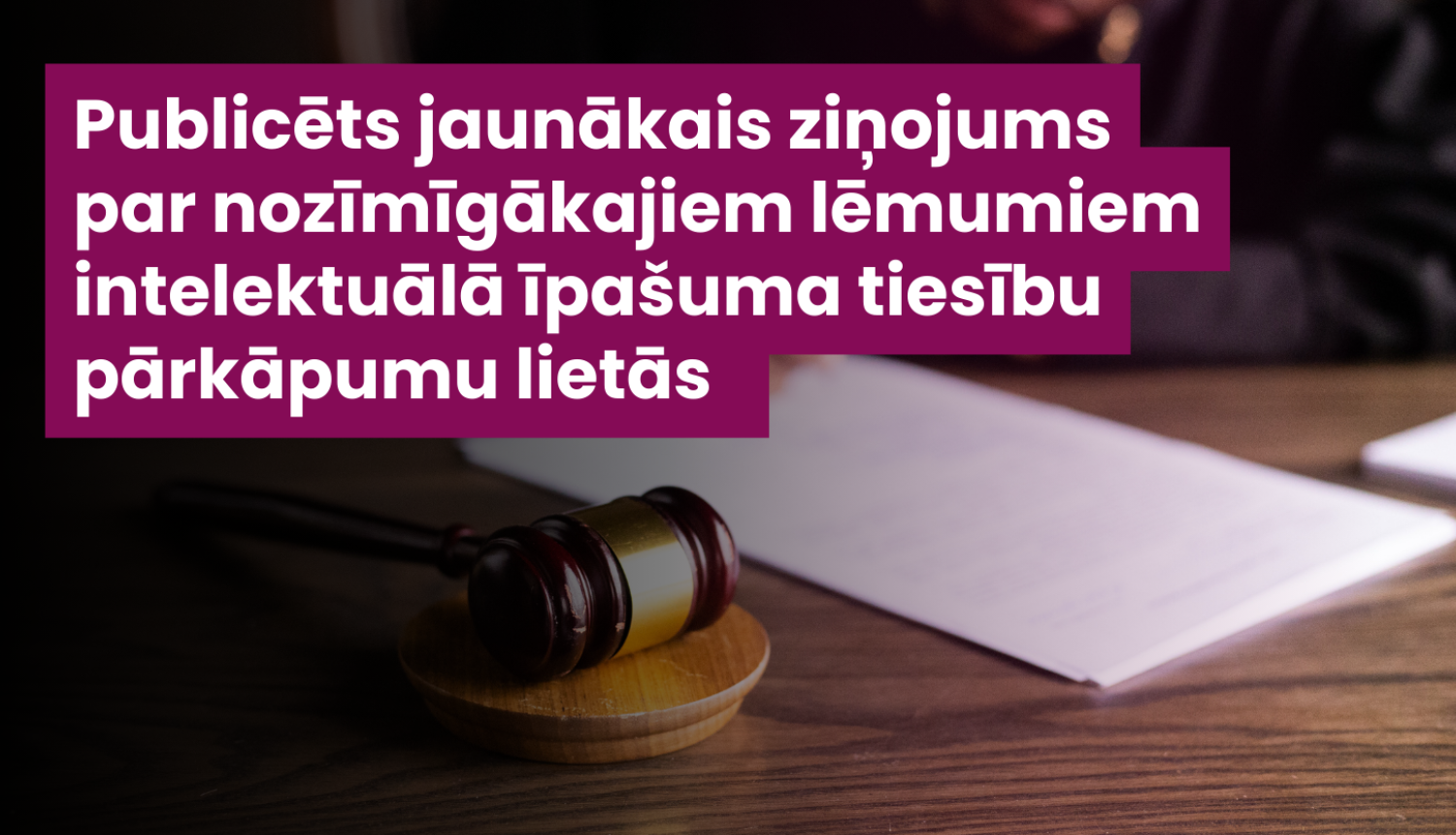The European Union Intellectual Property Office’s Observatory on Infringements of Intellectual Property Rights ( the Observatory) has published the newest report reviewing the most significant current decisions in intellectual property infringement cases in the Member States of the European Union (EU).
The report also covers decisions related to intellectual property registered or protected in Latvia.
The report contains summaries of more than 250 key judgments from national courts of the Member States. It also summaries preliminary rulings from the Court of Justice of the European Union (CJEU).
The first part of the report is devoted to the most recent CJEU rulings:
- In Case C-339/22, the CJEU ruled that the court of the place where the defendant resides shall have jurisdiction on the claim of patent infringement, even when the validity of the patent has been questioned. The decision, however, cannot affect the existence of the patent in a third country.
- In Case C-575/23, the CJEU ruled that national legislation can’t automatically assign the exploitation of related rights to employers, even if performances are carried out under an employment contract or statute and fall within its scope.
The report also highlights important rulings by national courts. For example, in Italy, the Court of Milan issued a precautionary injunction against Cloudflare to block certain domain names and routing of network traffic to identified IP addresses. In Germany, the Supreme Court ruled that the shape of Birkenstock sandals does not qualify for copyright protection under the notion of personal intellectual creation as defined in Section 2 (2) of the Act on Copyright and Related Rights (Urheberrechtsgesetz, UrhG).
The second part of the report describes judgments issued in recent years by various EU Member States, including Latvia, where decisions in two dispute cases were made by the Industrial Property Board of Appeal.
One of the preliminary rulings relating to Latvia is in the CJEU case on publicly available job advertisement databases, namely about whether the operator of one database is entitled to “extract” or “re-utilise” information collected and published in another database (Case C-762/19, CV-Online Latvia v Melons).
In 2020, the Industrial Property Board of Appeal examined a dispute in which the Swedish company Saltkråkan AB opposed the registration of the trademark “Pepi” (figurative mark), stating that it was too similar to the famous literary figure Pippi Longstocking.
The full text of the report is available on the Observatory’s homepage.



